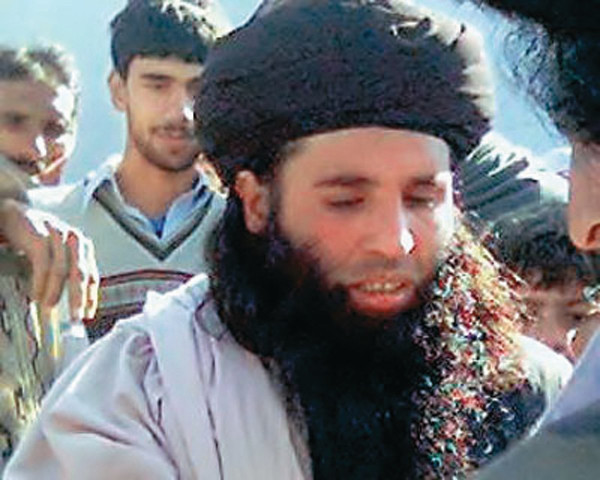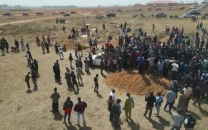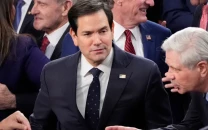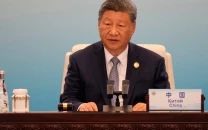Fazlullah dossier shared with Afghanistan, ISAF: Foreign Office
Dossier outlines Maulana Fazalullah’s involvement in the attack on Malala Yousafzai and two other girls.

Fazlullah dossier shared with Afghanistan, ISAF: Foreign Office
Khan made this statement during his weekly briefing in Islamabad at the Foreign Office.
Earlier, Pakistan had requested Afghanistan to hand over Maulana Fazlullah, claiming that he was involved in planning major attacks in Pakistan from across the border, including the attack on peace activist Malala Yousufzai.
According to Foreign Ministry sources, Foreign Minister Hina Rabbani Khar made this demand during her meeting with Afghanistan-Pakistan special envoy Marc Grossman, who arrived in Islamabad on Saturday for talks with political and military leaders on “issues of bilateral and mutual concern.”
Afghan authorities had said that Islamabad has not shared with them any intelligence regarding the presence of fugitive Pakistani Taliban, including the notorious Mullah Fazlullah, in eastern Afghanistan.
Sources added that Fazlullah has been involved in planning 15 major attacks in Pakistan, from Afghanistan, including attacks on security check posts and villages which have claimed almost 200 lives.
Maulana Fazlullah, also nicknamed “Mullah Radio” is the leader of banned militant outfit Tehreek-e-Nafaz-e-Shariat-e-Mohammadi (TNSM).
Known for his fiery radio broadcasts in Swat Valley, he is also sometimes referred to as chief of the Swat Taliban.
Earlier, it was reported that Fazlullah had sent a hit squad, comprising of two members, to kill 14-year-old Malala for being a proponent of girls’ education in the valley and speaking against the Taliban.



















COMMENTS
Comments are moderated and generally will be posted if they are on-topic and not abusive.
For more information, please see our Comments FAQ